The trailer for “The Sport of Figure Featuring Ava Cowan,” a muscle miniseries posted at GaspariNutrition.com, blows you away.
“I wanted it so badly,” Ava says with fervor. “Everyone told me no, and I said yes, I can. I can.” Her narrative is accompanied by footage of some of the most intense training short of Ronnie Coleman’s “The Cost of Redemption”—an exaggeration, yes, but not as great as you might think.
To put it another way, this is one gutsy girlfriend, a woman who’s learned how to take stock, reset her course and make things happen, in addition to being one of the hottest bodybuilding babes to come along in years. IRON MAN featured Ava in the September ’08 Hardbody (“Showerin’ With the Stunning Ava Cowan”), but the brief “bio” that accompanied Michael Neveux’s sizzling images didn’t even begin to scratch the surface of what makes the sexy, shredded and very determined Ms. Cowan run. Or, in this case, pump.
Hence this encore pictorial and far-ranging mid-January conversation with one of the IFBB’s most sensational new figure pros.
A few Ava Cowan basics: A gymnast who grew up partly in Sacramento, California, Ava moved to Los Angeles with Hollywood dreams and eventually migrated to Florida and a career as a certified personal trainer. A natural fit for figure competition, she won the ’05 NPC Southern States and the FAP ’07 Figure America and ’09 Figure Universe and was the ’07 WNSO North American Advanced Figure champion. Coming back to the NPC in ’09, she won the Eastern USA, took her class at the Nationals, earned a pro card and signed with Gaspari Nutrition. Oh, and she made that miniseries.
RS: First a quick update from 2008. You are still 5’4”?
AC: Yes.
RS: Still 123 pounds?
AC: I am. That’s off-season—what I am today.
RS: Just to update the fans who care about these things, when you last talked with IRON MAN, your answer to the question, Marital status? was, “In a relationship.” Are you still in a relationship?
AC: I am in a relationship but not the same one. [Both laugh heartily] Believe me, it’s definitely an upgrade. It’s funny. When that article came out, I was single. I was single for a whole year.
RS: Is that unusual?
AC: Yes. And it was the best time of my life. It forced me to stretch and grow as a person. It just took me to another level of being totally okay to be by myself.
RS: I think every woman has to learn that.
AC: I totally agree. And it did take a while to get back. I would be home myself on the weekends. And I waited until a Saturday night came along, and I was totally content with my cats, Ricky and Jimmy, watching TV.
RS: “The Sport of Figure” is intense. You seem to be a very determined woman.
AC: Extremely determined. I have a lot of determination—but I’m a humble person.
RS: What exactly is “The Sport of Figure” about?
AC: It’s really my journey back to the NPC. The idea is to let people know who I am as a person and as an athlete because a picture does not come close to talking about what a real person has to go through if they want to do well in the sport.
RS: Regarding your background, your parents were in the military?
AC: My mom was in the U.S. Army Corps of Engineers, so we moved around a lot. I lived up in Sacramento 10 years, and then I was in L.A. for 10 years pursuing acting. Before that I was in Bakersfield, I was in Tennessee, I was in Ridgecrest, California.
RS: What was it like to move around so much?
AC: It was very lonely and chaotic. It kind of made me introverted. I learned on the outside how to cope, but on the inside it was terribly difficult for me. I was very insecure and scared—and very sensitive. I didn’t stay in one school more than a year till I got to high school.
RS: Were you athletic as a kid or more of a girlie-girl?
AC: I was a gymnast from the time I was three years old until I was 15. That’s where I learned my work ethic. I was trained by Romanian coaches, and my whole life was training and working out.
RS: How far did you go in gymnastics?
AC: I was a level 3. I was the California state champion, and I did get the opportunity to represent the United States, going to exhibitions around the world. I didn’t go as far as I would have liked to have gone, but I did accomplish some things.
And it gave me a place that I could call home. Gymnastics was my safe haven.
RS: So at 15 why did you stop?
AC: Because at 15 I looked and had the body of an 11-year-old. Because I never had enough bodyfat to develop into a woman. Because I didn’t fit in—I went to an all-girl Catholic high school—and I started getting scared because the tricks were getting more difficult. I was old enough to know that I could get really hurt.
My mind was stopping me from doing basic moves. It was the strangest thing. I knew the day I quit—I was doing a basic, simple move on bars. I freaked out in the middle, and I almost landed on my head. And I lay there on the mat, and I go, “It’s over.”
RS: Is it true that you wanted to be an actress from the time you were a little girl?
AC: That’s true.
RS: Did you pursue it in school?
AC: Not really. In my school it was important to have really good grades. Everyone was into the mind and how smart you were. That’s how you were accepted by your peers. Arts wasn’t as important—unfortunately, because I think it’s very important.
I was always a performer—as a gymnast, my floor routine blew everyone out of the water. I’m just supposed to be in front of people.
RS: You moved to L.A. after graduation. Was that a longtime plan?
AC: It was kind of like, I met a boyfriend, and we were in Sacramento, and I had been that Catholic-school girl, a gymnast—I had come from a sheltered world—and I just wanted to go live it up. And that’s what I did [chuckles].
RS: You’ve said about your acting career that you worked very hard but you never got the roles. How frustrating was that?
AC: It was painful. I want things now—and I’m not real good with patience. So I would have had a better shot at being a brain surgeon because if I did the work, at the end I would have been a brain surgeon. I’d be talented enough to get the third callbacks, but I wasn’t a name, and no one would put their money on me.
RS: What was the most famous role that you were up for that you didn’t get?
AC: “Dark Angel.” Jessica Alba got it.
RS: What caused you finally to change gears?
AC: I just wasn’t making a living; I was tired of being poor because I was paying coaches—I would even have an audition coach. I was starving in L.A. You, know, if you’re not 20 there, they just make you feel as a woman [pauses]—it wasn’t a very healthy lifestyle for me there.
RS: In an interview a few years ago you said that you had been clean and sober for three years. I’m guessing that number has grown?
AC: Yeah, I’m 6 1/2 years now.
RS: Do you want to talk about that?
AC: I’m kind of an open book about it because it’s my truth, and if I can help someone else who doesn’t believe in themselves or think that there’s life “after,” then that’s why I’m in the position I’m in.
RS: Your making that turnaround and your move to Florida—were they connected?
AC: They were. I got sober in California and it was a great place for me, but I didn’t have a career. And then I [decided to become a personal trainer and] found a school in Florida. So I came out here, and I was clean for a couple years, and I had a relapse for about 30 days in 2003. And I knew real quick that that’s not what I can do. I’m an all-or-nothing person in every single thing I do.
RS: What caused you to get clean?
AC: It was mostly the way I felt about myself—that I knew I was not doing the best for myself. I knew that I’m an intelligent woman, I have a great heart, I have a good spirit, and I was not being who I was born to be. There was that voice inside me that was saying, “Why are you doing this to yourself? You could have it all.” But I needed to have a clear mind and get healthy in every area before I could discover that.
I went to rehab for 30 days. You know, you watch people on “Celebrity Rehab”? I wasn’t as bad as those people, but the truth is, I learned that normal people don’t drink or use drugs at all. And I think I have more of an addictive personality. I didn’t do it all the time, but when I did it, I did it. It was time to remove it because nothing good ever happened to me when I did it [laughs].
RS: When did you get into figure?
AC: January 2005 I started training for my first show. I was always the person who said, I’m going to get in shape. And I’d go to the gym for a couple of weeks to get it going, and it never stuck because I didn’t know what I was doing. But after I graduated from Fitness Institute International—it took 16 months—I became a certified personal-training specialist. Knowing how to properly train people gave me that self-confidence that “I can do this.”
RS: You started in the NPC in ’05, and then you won big titles in two other organizations, came back to the NPC in 2009, took two shows to the pros and got your card at the Nationals. Have you ever not won a figure contest?
AC: [Laughs] Yes—and not winning is great for me. I know that I won at Nationals, and I know I got my pro card, but not winning the overall title was the biggest gift—ever.
Any adversity—anyone tells me, No, you didn’t make it—turns the fire on inside of me, and I’m like, [drips attitude] Okay…
RS: Did you set out to win a figure triple crown—be a champion in three organizations—or did that just happen?
AC: [Laughs] I’ve never heard it put that way, but no. I always just keep my head down and keep going—just plow through it. I didn’t really think about it. I’m like, What’s next? What’s next? What’s next?
I did hit other organizations, but to go as far as I could go, I had to be with the most prestigious organization. And that is the NPC and IFBB. You can only go so far as an athlete in another organization. And, personally, I always have to learn the hard way. [Both laugh]
You live and you learn, and I just realized—in my heart, in my gut—I had always pictured myself on the Olympia stage.
RS: How did you make the contract with Gaspari happen?
AC: I’d been in contact with one of the people in marketing on and off over the years. I wanted to be signed with someone, but they weren’t ready for what I was hitting them up for.
Then I started growing as an individual, as an athlete, getting my look together, and they had this magical spot that wasn’t even supposed to be there.
I spoke with Rich Gaspari. I was at a pool party and I was there with my food bag, and I was in shape, and that’s what it takes to be an athlete. So I was discussing with him what my goals were, how I feel about marketing and a couple of the things I want to do. I was ambitious, and maybe he just said, We’ll give her a shot.
RS: How much weight training and aerobics do you do every week? And is there a difference between off-season and precontest?
AC: There’s only a difference because I don’t have the energy. If I had the energy during contest prep, I would lift as heavy as I do off-season. As a natural athlete I have to lift as heavy as I can to maintain [size] in a calorie deficit. So I lift six to eight reps—I lift like a bodybuilder. I do barbell squats; I do military presses; I do basic bodybuilding compound movements—deadlifts, everything.
I’m just not big into the whole cardio thing. I eat properly. I do interval training, and I do low intensity, and it’s a half hour to 45 minutes—no more than that. When I’m getting ready for a show, it’s up to six days a week, and off-season it’s three to four days a week.
RS: How have your workouts evolved?
AC: I started with the eight to 12 reps that I was taught in school—that’s the hypertrophy rep range—but I couldn’t get what I wanted. I wanted more shoulders. I could not get biceps. So a couple of years ago I decide to get some straps and let go of the fear and just lift some heavy weight. Now I do both rep ranges, but I make sure I include lower reps instead of being afraid of whatever, the bogeyman—the big I’m-going-to-be-too-big thing.
RS: What’s your current bodypart split and schedule?
AC: I switch it up a lot. I’m currently off-season, and I train four days a week—Monday, Tuesday, Thursday and Friday: day 1, legs; day 2, shoulders and abs; day 3, biceps and triceps; day 4, chest and back.
I don’t do abs that often.
RS: No? Do your abs look like that naturally, or do you just stay lean?
AC: That is genetics, that’s the way that they’re built—and I don’t hold a lot of fat right on the front of my abs. So it is both that, and it’s the way I train and eat.
RS: What is Ava Cowan’s first rule of training?
AC: Eat before you train. [Both laugh]
RS: What’s your approach to healthful eating, in general and when you’re prepping for a contest—and has it changed?
AC: I was working with someone who is very strict—no salt, very regimented, old-school bodybuilding. I educated myself, and I now count macronutrients, and I incorporate more varieties of foods. I’m not afraid of dairy anymore. I’m just doing things differently, and I got lean anyway.
RS: What are your macronutrient counts?
AC: Off-season, I’ll be at 170 grams of protein, 170 grams of carb, 24 grams of fat. That’s what I’m at right now. I had a huge holiday, so I’m tapering down now. But I like to eat more carbs. So it’ll be 195, 210 two days a week just so I can keep my metabolism up so that I don’t have to kill myself when I diet.
RS: If you could have only one supplement, what would it be?
AC: I would always keep my protein, so I’ll pick between MyoFusion, which is a blend of egg milk and whey, and IntraPro, which is a pure whey isolate protein.
Other than that, I mostly eat whole food—except a protein shake in the morning if I’m lazy and at night.
RS: Can you describe a day’s worth of off-season eating, starting with when you get up?
AC: Meal 1: Off-season, if I don’t have a protein shake, I might make French toast with 2 whole eggs, 2 egg whites, 4 slices low-carb bread and 1/4 cup sugar-free syrup. If I’m getting ready for a contest, I’ll definitely have real food.
Meal 2: This might be a chicken sandwich on a whole-wheat bun and maybe some ketchup.
Then I’ll work out, and I bring my food to the gym. The following is pretty typical of the rest of the day’s eating:
Meal 3, Postworkout: 1 cup cooked whole-wheat pasta, 3 ounces tomato sauce, 2 ounces cheese, 2 ounces chicken
Meal 4: 2 tablespoons natural peanut butter, 2 slices low-carb whole-grain bread
Meal 5: 6 ounces top sirloin, 1 cup cooked rice, 1 cup steamed green vegetables
Meal 6: Protein shake
RS: Besides protein, what other supplements do you use?
AC: These are my off-season supplements:
• 2-3 scoops SuperPump250 (lean muscle amplifier) 40 minutes prior to weight training
• 1 scoop SizeOn (creatine) during workout
• 4 BCAA caps, 1 in the morning, 1 preworkout, 1 postworkout and 1 in the evening
• 2-3 grams beta-alanine, 1 gram with breakfast, 1 gram preworkout and 1 gram postworkout
• 4 fish oil caps, 2 in the morning, 2 in the evening
• PlasmaJet (nitric oxide maximizer), 1.5 hours before weight training, 4 times per week
Here’s the precontest list:
• 3 CytoV2TABS upon awakening for 30 days
• For the next 30 days or 30 days precontest, 3 MitoTABS upon awakening and 30 minutes before breakfast.
• 3 sesamin capsules
• BCAAs, beta-alanine, fish oil caps and PlasmaJet, same as in the off-season
RS: Are you making some changes training- and nutritionwise for your pro debut?
AC: Nope. I was happy with my body at Nationals, and I’m just going to keep going with what’s been working.
I get feedback when I look in the mirror. I try to look for balance and symmetry and make sure that my shoulders don’t get any bigger. I need to keep those in check because I get small in the bottom half.
RS: When will you make your pro debut?
AC: August 7—the Jacksonville Pro. The goal is to try and qualify for the Olympia, and so if not there, then the Europa Super Show, and if not there, Houston. I’m giving myself three chances.
RS: So you’re waiting a bit?
AC: I dieted for 12 months last year. My thyroid is shot—I’d like to produce some hormones. That kind of training for that long, the way I do it—I was jeopardizing my health.
I actually gained some weight, which is hard for me mentally because everybody knows me as being shredded. But I have to look at the longevity of it—because I’d like to do this for a while.
Also, I had some hamstring issues, and I need to know that I’m healthy before I jump back onstage.
RS: Do you work your clients as hard in the gym as you work yourself?
AC: Yes.
RS: You mentioned that you’re getting a lot of competitors now.
AC: And I love that. The posing and the stage presentation. From all my years of ballet and being onstage and performing as a gymnast, an actress, I have that stage thing down. It’s more than those quarter turns.
RS: It’s an attitude?
AC: Oh, yeah. The attitude is, This show is mine.
RS: Do you still have some acting dreams?
AC: Absolutely. I don’t believe God puts a dream in your heart unless you’re meant to do it. And so, it’s not over for me yet.
I have my eye on reality television [laughs]. If everyone else can, I can.
Editor’s note: You can follow Ava Cowan and contact her at Ava.GaspariNutrition.com. Find her also at www.AvaCowan.com. IM
Compiled by Ruth Silverman
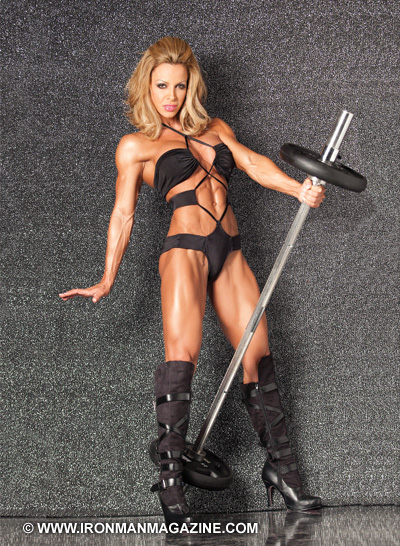
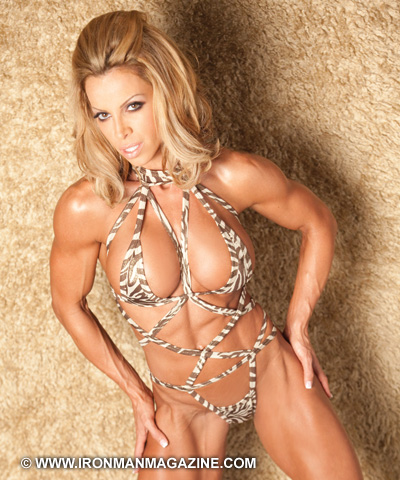
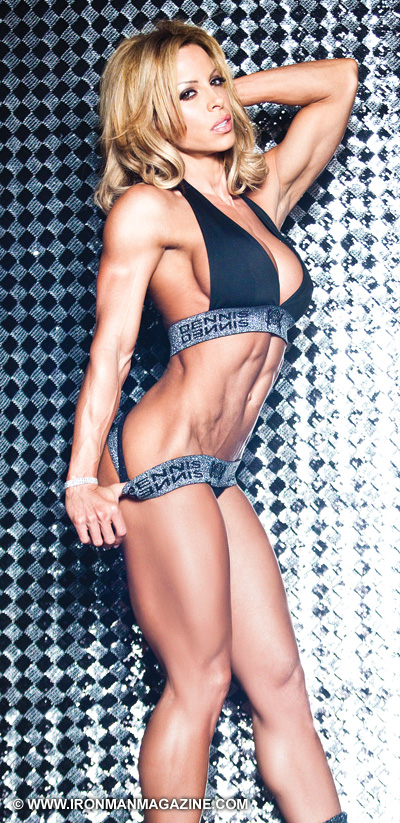
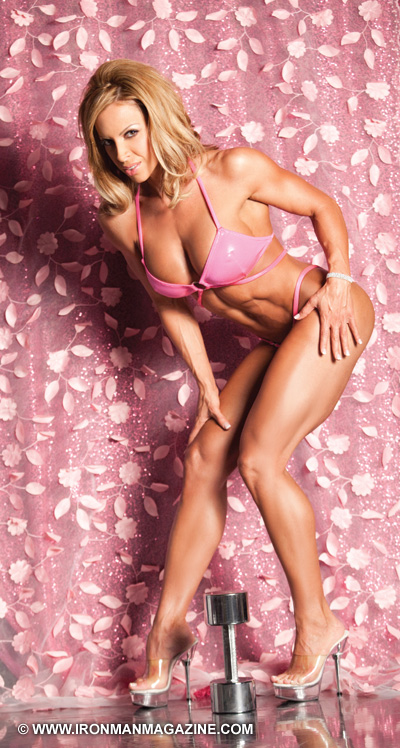
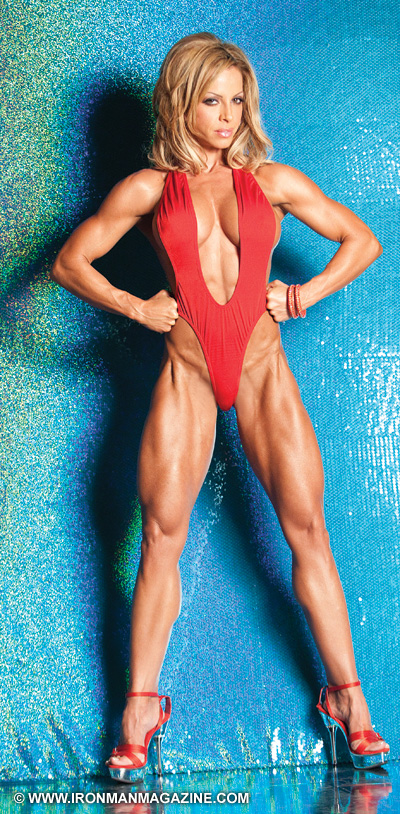
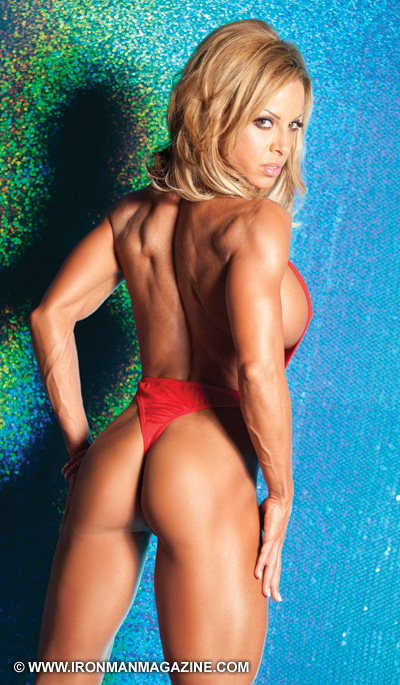
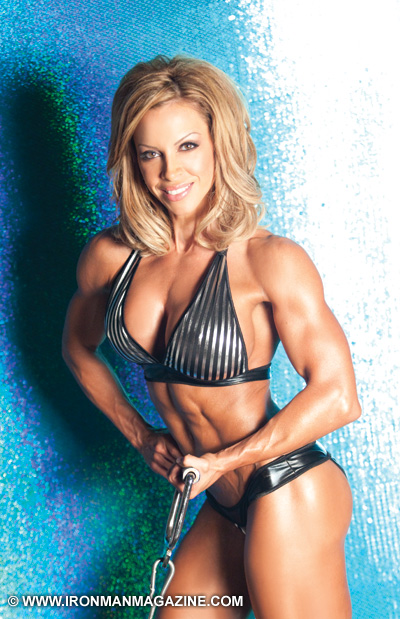
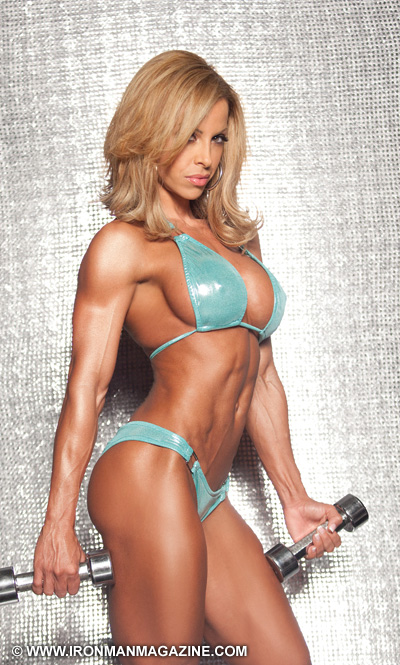
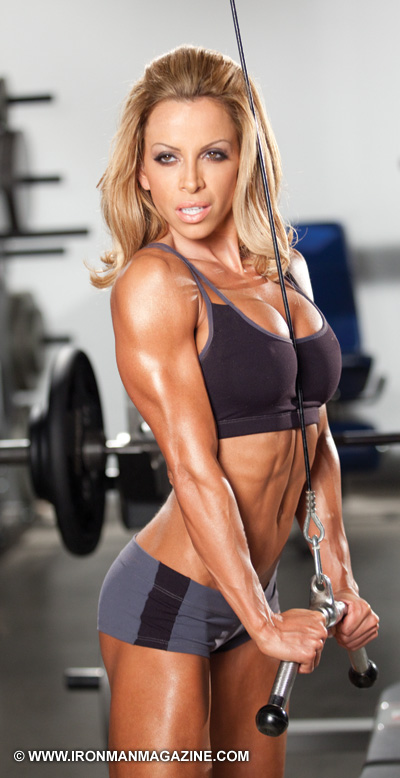
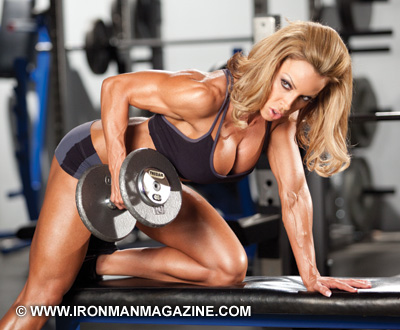











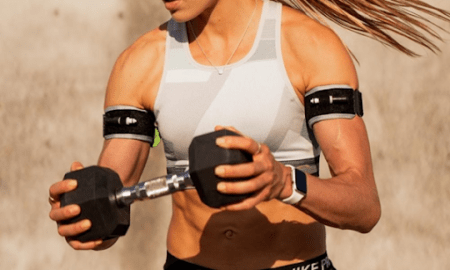
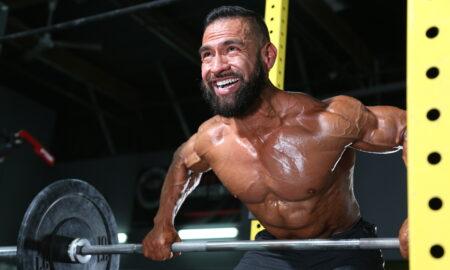
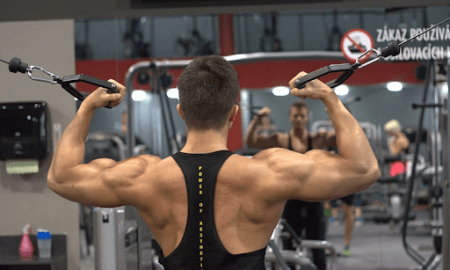
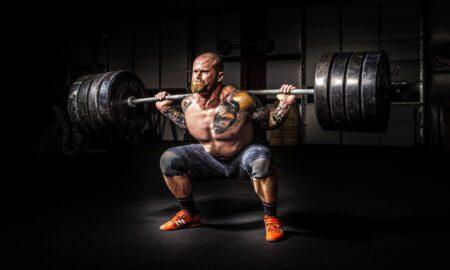
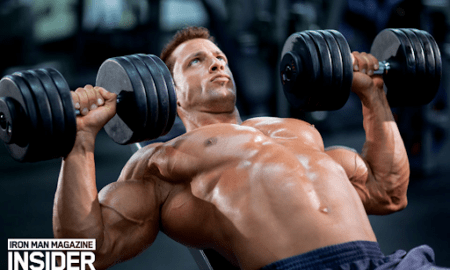

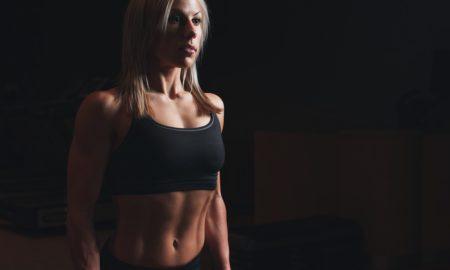
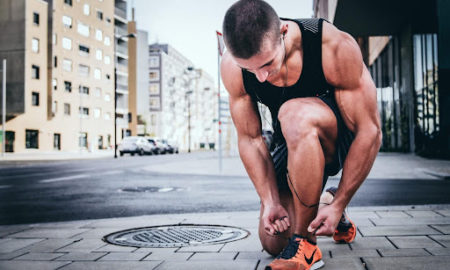
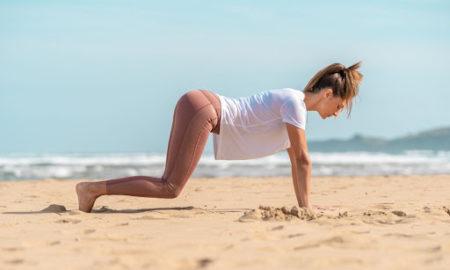
You must be logged in to post a comment Login